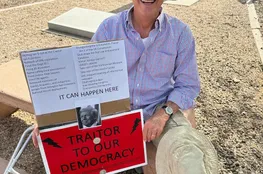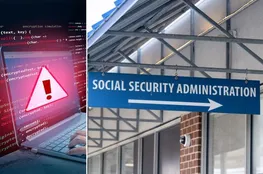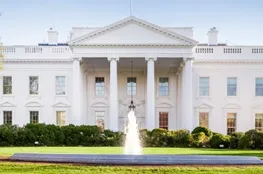The U.S. Department of Justice has filed a lawsuit against Orange County Registrar of Voters Bob Page, alleging a failure to provide complete records regarding the removal of non-citizen voters from the county’s registration lists. This action stems from concerns about compliance with the Help America Vote Act (HAVA) of 2002, a landmark law designed to modernize and secure the nation’s elections. The Justice Department’s core argument centers on the Registrar’s alleged refusal to furnish full, unredacted records detailing the process of removing ineligible voters – specifically those who are not U.S. citizens – from the voter rolls. The lawsuit highlights a significant issue: the maintenance of accurate voter registration lists, a cornerstone of efficient and secure elections, and vital for fostering democratic engagement. The allegations center on the provision of redacted records, omitting crucial personal information such as social security numbers and state identification numbers, raising serious questions about transparency and adherence to federal voting laws. The Department contends that Orange County’s actions have undermined public confidence in the electoral process, explicitly stating that the county ‘refused transparency of its voter information, in violation of federal voting laws, and concealing the unlawful registration of ineligible, non-citizen voters.’ This legal challenge underscores the importance of ensuring that only eligible electors – those meeting the constitutional requirements to vote – are permitted to participate in the democratic process. The Justice Department’s investigation was triggered by a complaint filed by a family member of a non-citizen residing in Orange County who reportedly received an unsolicited mail ballot despite lacking U.S. citizenship. This incident further fueled the Department’s concerns about potential irregularities in the county’s voter registration practices. The lawsuit specifically requests records dating back to January 2020, seeking detailed information on the number of voter registration records canceled due to non-citizen status, along with supporting documentation such as applications, voting history, and correspondence exchanged between the Registrar’s office and the individuals involved. The Department asserts that the redacted data provided by Page ‘prohibits the attorney general from making an accurate assessment’ of the Registrar’s compliance with election laws, creating a significant impediment to a thorough investigation. Furthermore, the Justice Department argues that Orange County’s reliance on state law as justification for the redactions is legally flawed, claiming that state regulations are preemped by federal election laws. The lawsuit sets a deadline of June 20th for Page to provide the unredacted information, a timeline that the Registrar, through Assistant County Attorney James Steinmann, has indicated will not be met. This legal battle highlights the ongoing tension between state and federal oversight of elections and the critical need for verifiable, accurate voter registration data. The involvement of prominent legal figures, including Harmeet Dhillon, Michael Gates, and Bill Essayli, adds significant weight to the Department’s position, signaling a serious commitment to upholding election integrity. The Department’s stance is clear: voting by non-citizens is a federal crime, and states and counties that refuse to disclose all requested voter information are in violation of well-established federal elections laws. This case represents a significant development in the ongoing debate surrounding election integrity and the responsibilities of local officials in safeguarding the democratic process. The Justice Department’s actions demonstrate a proactive approach to ensuring compliance with federal law and protecting the integrity of U.S. elections.
The Justice Department’s investigation was triggered by a complaint filed by a family member of a non-citizen residing in Orange County who reportedly received an unsolicited mail ballot despite lacking U.S. citizenship. This incident further fueled the Department’s concerns about potential irregularities in the county’s voter registration practices. The lawsuit specifically requests records dating back to January 2020, seeking detailed information on the number of voter registration records canceled due to non-citizen status, along with supporting documentation such as applications, voting history, and correspondence exchanged between the Registrar’s office and the individuals involved. The Department asserts that the redacted data provided by Page ‘prohibits the attorney general from making an accurate assessment’ of the Registrar’s compliance with election laws, creating a significant impediment to a thorough investigation. Furthermore, the Justice Department argues that Orange County’s reliance on state law as justification for the redactions is legally flawed, claiming that state regulations are preemped by federal election laws. The lawsuit sets a deadline of June 20th for Page to provide the unredacted information, a timeline that the Registrar, through Assistant County Attorney James Steinmann, has indicated will not be met. This legal battle highlights the ongoing tension between state and federal oversight of elections and the critical need for verifiable, accurate voter registration data. The involvement of prominent legal figures, including Harmeet Dhillon, Michael Gates, and Bill Essayli, adds significant weight to the Department’s position, signaling a serious commitment to upholding election integrity. The Department’s stance is clear: voting by non-citizens is a federal crime, and states and counties that refuse to disclose all requested voter information are in violation of well-established federal elections laws. This case represents a significant development in the ongoing debate surrounding election integrity and the responsibilities of local officials in safeguarding the democratic process. The Justice Department’s actions demonstrate a proactive approach to ensuring compliance with federal law and protecting the integrity of U.S. elections.
This is a breaking news story. Check back for updates.
























